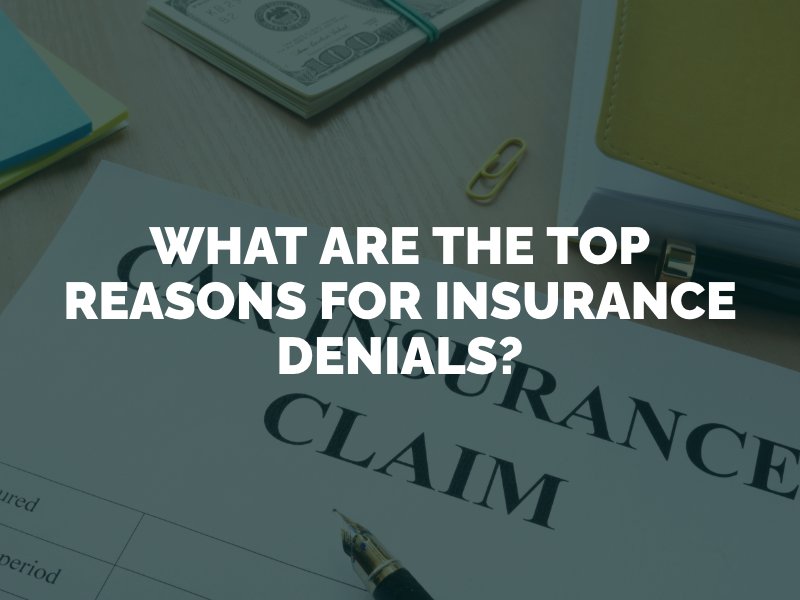An insurance claim can be an arduous process. Whether you were at fault for the accident or not, an insurance company may not make it easy to obtain the compensation or benefits you deserve. An insurance provider may give you many reasons for denying your claim – some valid, others not. It is important to understand the top reasons for insurance denials so you can recognize insurance bad faith.

Most insurance companies apply deadlines to the claims process. You may have a deadline by which you must file the initial claim, for example, or submit the Proof of Loss form. Missing any of these time limits could lead to a claim denial from the insurance provider. Learn the insurance company’s deadlines for claims and information submissions, as well as its policies if you miss the deadline. You may be able to work out this kind of denial by negotiating with the insurance agent. Submit your claim as soon as possible to avoid this issue.
If you submitted all the required information by the deadline, the insurance company may be denying your claim based on a liability dispute. After investigating, the insurance company might not believe its policyholder is liable for your damages and losses. The insurer may argue that someone else caused your damages or that you were at fault for the losses yourself. A liability dispute could lead to a full denial of your claim. If the insurance company thinks you contributed to your injuries, it may still offer compensation, but in a smaller amount based on the rules of comparative negligence.
Medical care is a key part of any insurance claim involving injuries. The insurance company will look to see if you received medical care, how long you waited before going to the hospital, whether you received an official injury diagnosis, what types of treatments your doctor recommended, whether you received follow-up care and if you are following your treatment plan exactly. Failure to follow through with treatments, no diagnosed injury or delayed medical care are common issues that lead to insurance denials.
Do not give an insurance claims adjuster permission to access your full medical history. This is a tactic insurers often use to search for pre-existing injuries in your medical background. If you have a pre-existing injury, the insurance company may try to use it to deny coverage or decrease its settlement offer. Instead of signing a medical release waiver, obtain copies of only your relevant medical records to submit to the insurance company yourself.
Coverage availability is another common reason for insurance claim denials. The company may deny your claim if the policy in question does not have the type of coverage you are seeking. If you request coverage from your own insurance provider after a hit-and-run car accident, for example, but do not have uninsured/underinsured motorist insurance, your insurance company may deny the claim. A company might also deny or reduce coverage if your claim exceeds the maximum coverage available on the policy.
Any type of problem you encounter while trying to recover financial coverage from an insurance company could warrant a phone call to a Denver injury attorney. An attorney will know exactly how to negotiate with an insurance adjuster about issues such as liability or missed deadlines. It is especially important, however, to hire an attorney if you are the victim of insurance bad faith.
Insurance bad faith means the insurance company is intentionally treating you dishonestly or unfairly. Many insurers are guilty of bad faith as a means to save money and profit their investors. They may deny claims without valid reasons. If you suspect an insurance company of bad faith in handling your claim in Denver, contact an attorney for assistance with negotiations. A lawyer may be able to bring a separate claim of bad faith against the insurer on your behalf for additional compensation.